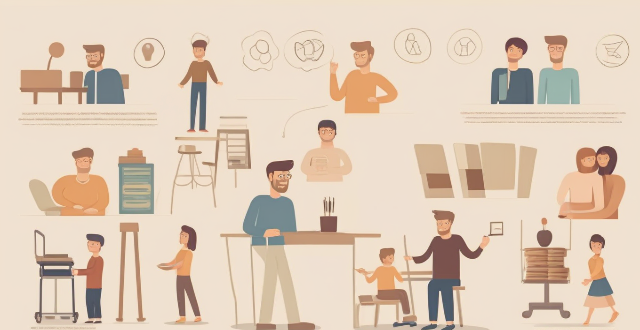Effective parent-teacher collaboration requires open communication, shared goals, consistent expectations, and supportive resources. By working together, parents and teachers can create a positive learning environment that fosters academic success and personal growth for students.

How Can Parents and Teachers Effectively Collaborate to Support Student Learning?
Parent-teacher collaboration is a critical aspect of supporting student learning. When parents and teachers work together, they can create a positive learning environment that fosters academic success and personal growth. In this article, we will explore some effective strategies for parents and teachers to collaborate in support of student learning.
Open Communication
One of the most important aspects of parent-teacher collaboration is open communication. Both parents and teachers should be willing to communicate regularly about the student's progress, challenges, and opportunities for improvement. This can be done through:
- Regular meetings: Scheduling regular meetings between parents and teachers allows for face-to-face discussions about the student's performance, goals, and any concerns that may arise.
- Email updates: Teachers can send periodic emails to parents with updates on their child's progress, upcoming assignments, and important dates.
- Phone calls: For more urgent matters or when face-to-face meetings are not possible, phone calls can be an effective way to communicate quickly and efficiently.
Shared Goals
Another key component of effective parent-teacher collaboration is having shared goals for the student's learning. Both parents and teachers should work together to establish clear, measurable goals that align with the student's needs and interests. Some examples of shared goals include:
- Academic achievement: Working together to improve the student's grades in specific subjects or overall academic performance.
- Social skills development: Helping the student develop strong interpersonal skills, such as empathy, cooperation, and conflict resolution.
- Personal growth: Encouraging the student to explore their interests, develop new hobbies, and build self-confidence.
Consistent Expectations
It is essential for parents and teachers to have consistent expectations for the student's behavior, attendance, and homework completion. By working together to establish clear guidelines and consequences for these areas, parents and teachers can create a structured learning environment that supports the student's success. Some ways to ensure consistent expectations include:
- Homework policies: Establishing clear guidelines for homework completion, including due dates, formatting requirements, and late penalties.
- Attendance policies: Developing consistent expectations for attendance, including consequences for missed classes or tardiness.
- Behavior expectations: Agreeing on appropriate classroom behavior and consequences for disruptive or disrespectful actions.
Supportive Resources
Both parents and teachers should work together to provide supportive resources that help the student succeed in their learning journey. This can include:
- Tutoring services: Providing access to tutoring services or additional instructional support if needed.
- Extracurricular activities: Encouraging the student to participate in extracurricular activities that align with their interests and help them develop new skills.
- Family involvement: Involving family members in the student's learning process by attending school events, volunteering at the school, or participating in home learning activities.
In conclusion, effective parent-teacher collaboration requires open communication, shared goals, consistent expectations, and supportive resources. By working together, parents and teachers can create a positive learning environment that fosters academic success and personal growth for students.